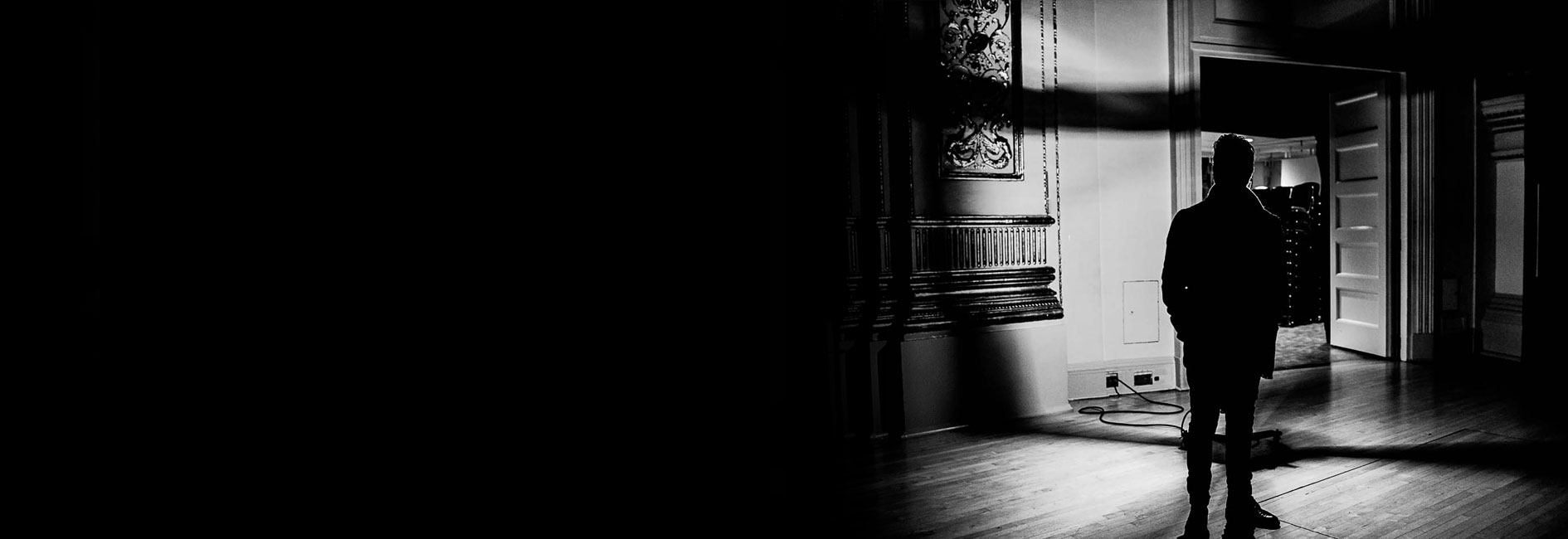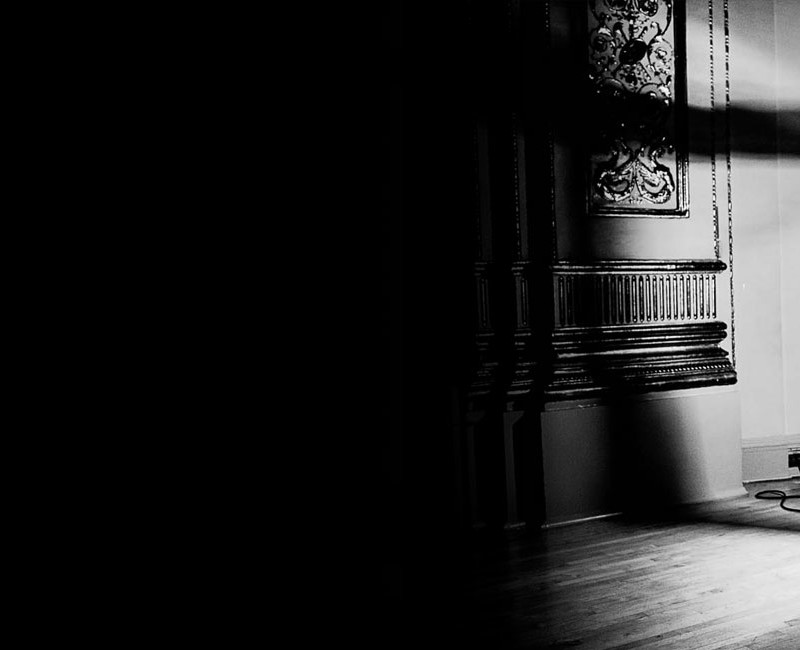The Love Potion Remixer
19 Jun 2012
Conductor Pablo Heras-Casado has chosen Germany as the base for his world career. Now he is conducting the Donizetti opera in Baden-Baden with tenor Rolando Villazón.
He’s just spent a few days holidaying in his new house in Granada. But even there, he couldn’t take time off completely. He met some friends to make music, singing the ‘lazy tenor’ part, the second voice in Renaissance madrigals by early Spanish composers, and in so doing, went back to his roots. Roots – that sounds very worldly-wise for someone who’s just 33. But if we take a quick look at what this Andalusian conductor, whose career is now really taking off, has already achieved, at the musical worlds in which he is at home, supremely confident, then his roots as a self-taught but fiery 17-year-old really do seem to be a very long way away.
The man with the still so childlike shock of curls, who comes across as highly likable, without any superior attitudes or maestro arrogance, someone with whom one can just sit down and talk about God and music, has just one explanation for this: ‘I love everything that makes a sound, and I’m curious.’ One feels at once that conducting is primarily concerned with the ability to communicate. And he has this ability in the highest measure.
And so from Whit Monday on, we can experience Pablo Heras-Casado as the Donizetti conductor in ‘The Elixir of Love’. He will see to it that attention is focused not just on the come-back merchant with the tenor voice, Rolando Villazón, in the curious dual role as leading man and director. For Nemorino’s (hopefully) sweet secret aria tears will be answered from the pit by hitherto unheard sounds. The pit will be occupied by the early music specialists, the Balthasar Neumann Ensemble, the playing will be tuned to 430 Hertz, and care will be taken to achieve an historically critical, authentic but lively belcanto. ‘It won’t just be um-ta-ta, it will sound graceful and fresh,’ promises the maestro. A maestro who doesn’t really want to be a maestro, but who wants to be accessible, and yet one who has stood on the rostrum in front of the great orchestras of our time, from the Amsterdam Concertgebouw to the Berlin Philharmonic.
Pablo Heras-Casado made his debut there last October. It was not love at first sight, in a way that it was for other important young conductors such as Andris Nelsons, Gustavo Dudamel or Yannick Nézet-Séguin. They however are less demanding and do not pester the spoilt orchestra right away with such rehearsal-intensive sound-art pieces as Szymanowski’s 3rd Piano Symphony, last played here 75 years ago, or fiddly miniatures by Berio or gourmet titbits by Mendelssohn. Of course that was a lot all at once, and more rehearsal time for that sort of thing is never a bad idea. But no one sat around treating it as routine and just letting it happen. An ambivalent experience in other words, Heras-Casado is clear about that, but he has no time to look back. He is looking ahead to a concert diary which would seriously disconcert many fellow conductors who are happy to stage the same old works time and again.
‘Yes, it’s true. I’m omnivorous,’ says Pablo Heras-Casado with pleasure. ‘When I first met Rolando in Paris to discuss the concept, it was shortly before a concert with the Ensemble Intercontemporain, and he just couldn’t understand how I could sit there so calmly an hour before the premiere, and talk about rhythmic accents in Donizetti.’ Multi-tasking however doesn’t seem to faze him, rather, it pushes him to do more. He is like a piece of blotting paper that absorbs everything. Otherwise it would be quite impossible to pack so many new things into so few weeks, and at the same time to study ever more scores in every library imaginable and on diverse electronic media.
At the same time, he’s no pale nerd stirring his soya cappuccino. He’s a gourmet, a bon vivant, and insiders give him a (well-meaning) reputation as a womanizer who’s said to have broken quite a few hearts.
A Don Juan, then, a driven maniac who cannot enjoy anything? Pablo Heras-Casado clicks his tongue and comes across as even younger. ‘No. I’m a gourmet, not a gourmand, but so many things appeal to me that I have to allocate things precisely, otherwise I spread myself around too much.’ He seems to have succeeded. Because everyone wants him. He is never sated, but there is a limit even to his favours.
And this musician who loves Early Music as he does the ultra-contemporary is prepared to make gifts – of opera as well as chamber music, of the intoxicating alongside the contemplative, he gives his time to Gerard Mortier’s Teatro Real in Madrid and to the Mariinsky Theatre and the Metropolitan Opera. And ‘because I want to be challenged by the German theatre as an artist and as a human being’ he is due to appear not once but twice next season with two choice Verdi cuts on German operatic stages: in April 2013 he is staging ‘Rigoletto’ at the Deutsche Oper in Berlin together with Jan Bosse, and in June in Frankfurt, the ‘Sicilian Vespers’ together with Jens-Daniel Herzog.
Pablo Heras-Casado has never had any formal musical training, he played the piano and sang in a choir, and as a teenager he formed his first a cappella ensemble, which was soon joined by a few instrumentalists, who of course also had to be conducted. So he made himself available. Later he studied art history, looked around here and there in master classes with conductors who interested him, sat in on the Parisian Opera. And finally in 2007 he won the conducting competition at the Lucerne Festival, which is backed by such powerful mentors as Pierre Boulez and Peter Eötvös. Since then things have gone in a hurry. But differently.
Of course de luxe orchestras interest Pablo with his catholic tastes, but he has formed a closer association with two flexible top-class ensembles. In Europe, the Freiburg Barockorchester is becoming his orchestral home, and there are already far-reaching Harmonia Mundi recording plans. On the American silver platter in New York he has decided on the Orchestra of St Luke’s, a small and exclusive ensemble which has all periods and styles from Mozart to Messaien on its programme. So while maintaining a solid German base, Heras-Casado switches and swings with bravado and style from Praetorius to Puccini, from Albinoni to Xenakis, from Bach to Berg.
And he’s in love once more. ‘With dance. And of course with Sasha Waltz.’ Together with the Berlin choreographer, he recently premiered Toshio Hosokawa’s No opera ‘Matsukatse’ in Brussels and Berlin, and Monteverdi’s ‘Orfeo’ is due to follow soon. While conductors over 50 are becoming somewhat thin on the ground, the young rostrum generation seems healthy enough. And among them, Pablo Heras-Casado shines out: he has sensitivity, and he has style.

